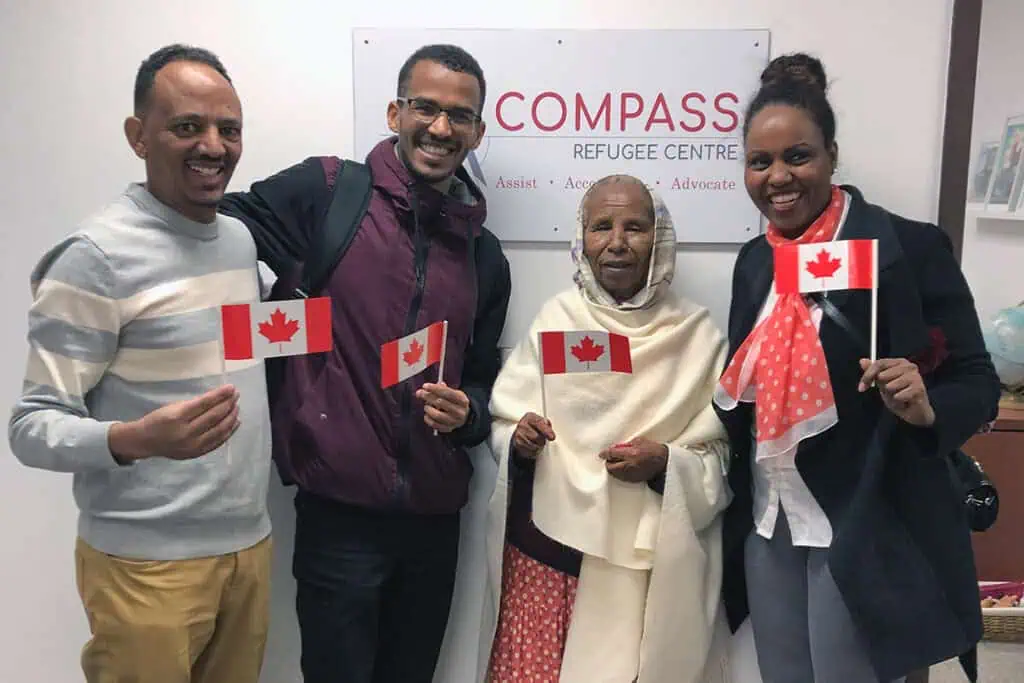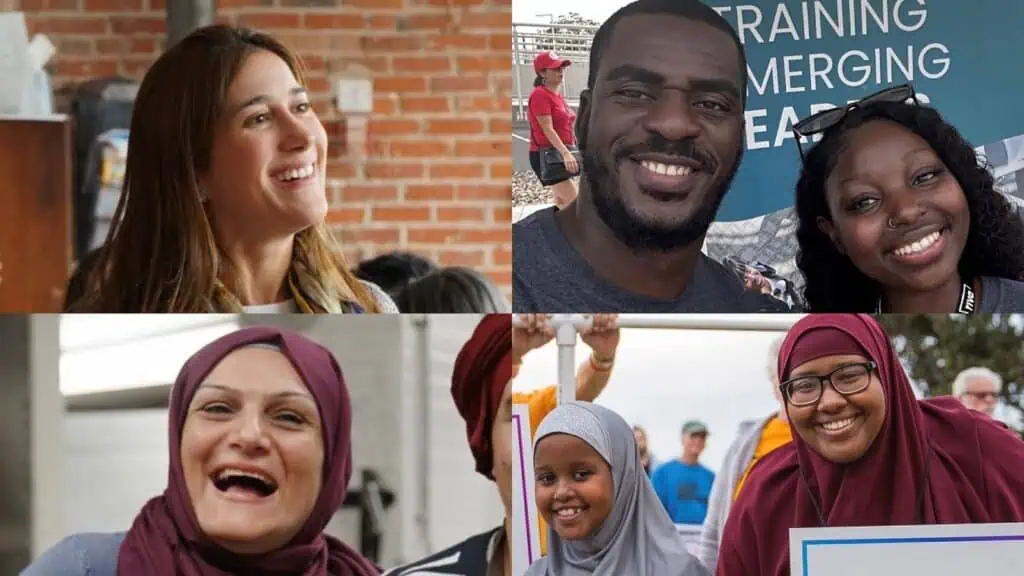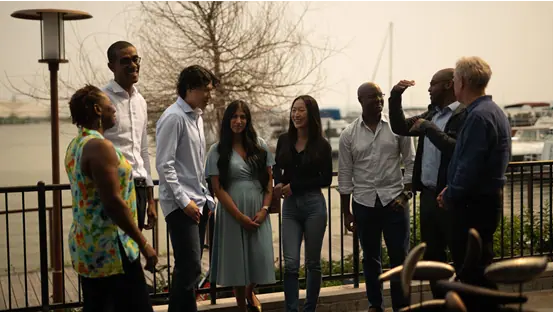Meet the First Graduates of the Migrant Systems Change Leadership Program
At the end of last year, 22 inaugural graduates completed the Migrant Systems Change Leadership program, created for inspiring individuals with lived immigrant and refugee experience who are passionate about working with and supporting their communities. This first-of-its-kind program was launched in 2021 by the RADIUS Refugee Livelihood Lab at Simon Fraser University, a grantee partner of the WES Mariam Assefa Fund.
Through the program, immigrant and refugee leaders work alongside one another and with advisors to develop, test, and share initiatives that address social, political, or economic issues specific to refugee and immigrant communities. RADIUS Refugee Livelihood Lab offers a welcoming and safe environment and tailored coaching support to help participants develop their confidence and leadership skills. The program centers on foundational concepts of equity, racial justice, Indigenous rights, and decolonization.
“Each participant showed up to share their knowledge and ideas to create a community space like no other,” said Yara Younis, project manager at the RADIUS Refugee Livelihood Lab. “They formed meaningful bonds and became support systems to lean on. We are so inspired by this group of community leaders, and we look forward to seeing how their projects evolve.”
The Fund team recently spoke with three graduates of the Migrant Systems Change Leadership program to hear about their work and experiences.
 Nikhat Izhar Qureshi
Nikhat Izhar Qureshi
Growing up, Nikhat Qureshi had a passion for visual arts but never had the chance to pursue it professionally. She focused on her academics and graduated with a law degree in Pakistan, followed by post-graduation in Dallas, Texas.
Nikhat originally immigrated to Canada in 2003. However, she accompanied her husband in the United States for his work until 2016. Nikhat moved back to Canada with her husband and son, however soon after the move, her husband tragically passed away from cancer. Afterward, she worked tirelessly to find work but continuously faced barriers, and for most jobs, it was either overqualified or lacked Canadian experience.
Nikhat turned to art as a form of therapy. She began hosting calligraphy workshops in her community and connected with libraries and art galleries to offer her volunteer services. Visual arts became an increasingly large part of her life. Her overlapping passions for meditation, reconciliation, and visual arts led her to create the Art for Peace, The Artful Peace Practice (TAPP) that help people use art to process their inner conflict.
Through the Migrant Systems Change Leadership program, Nikhat learned about diverse immigrant communities and Indigenous populations. The program helped her better understand the needs of different communities.
Nikhat aims to create a space that will bring people together to collaborate and create art and provide meditation and reconciliation services. She plans on incorporating her Pakistani heritage into the new space and café, called Love Art with Chai, where chai will be served with art supplies and ideas.
Christiana Onabola
Christiana Onabola, a doctoral student at the University of Northern British Columbia, came to Canada as an international student to complete a master’s degree. Propelled by her own experience, she was soon inspired to create a bridging program that would help international students navigate Canada’s workplace and academic cultures.
The Migrant Systems Change Leadership program helped Christiana bring her idea to fruition. She is now developing a platform that will channel cultural competencies into assessment practice tools. She also plans to engage stakeholders to help further refine her platform. “There are few platforms that effectively assist immigrants in their employment journeys,” Christiana said. “The idea is that this platform will support immigrants in building communication skills and understanding Canadian workplace culture.”
Thábata da Costa
As a newcomer to Canada from Brazil, Thábata da Costa saw the potential in shifting employer practices to better support immigrants.
Thábata has a background in journalism and holds master’s degrees in business administration and international studies. Despite her education and professional background, she faced difficulty finding work in Canada that matched her experience.
While there are existing employment programs in Canada that connect immigrants with jobs, these jobs are often not commensurate with people’s education and experience. For example, immigrants with doctoral degrees have been placed in warehouse jobs.
Thábata grew interested in finding ways for employers to more effectively engage and employ immigrants. Joining the Migrant Systems Change Leadership program supported her efforts to solve this problem, access employers, and understand how to improve existing employment systems.

Above: the 2021 Migrant Systems Change Leadership program cohort. Photo credit: RADIUS




